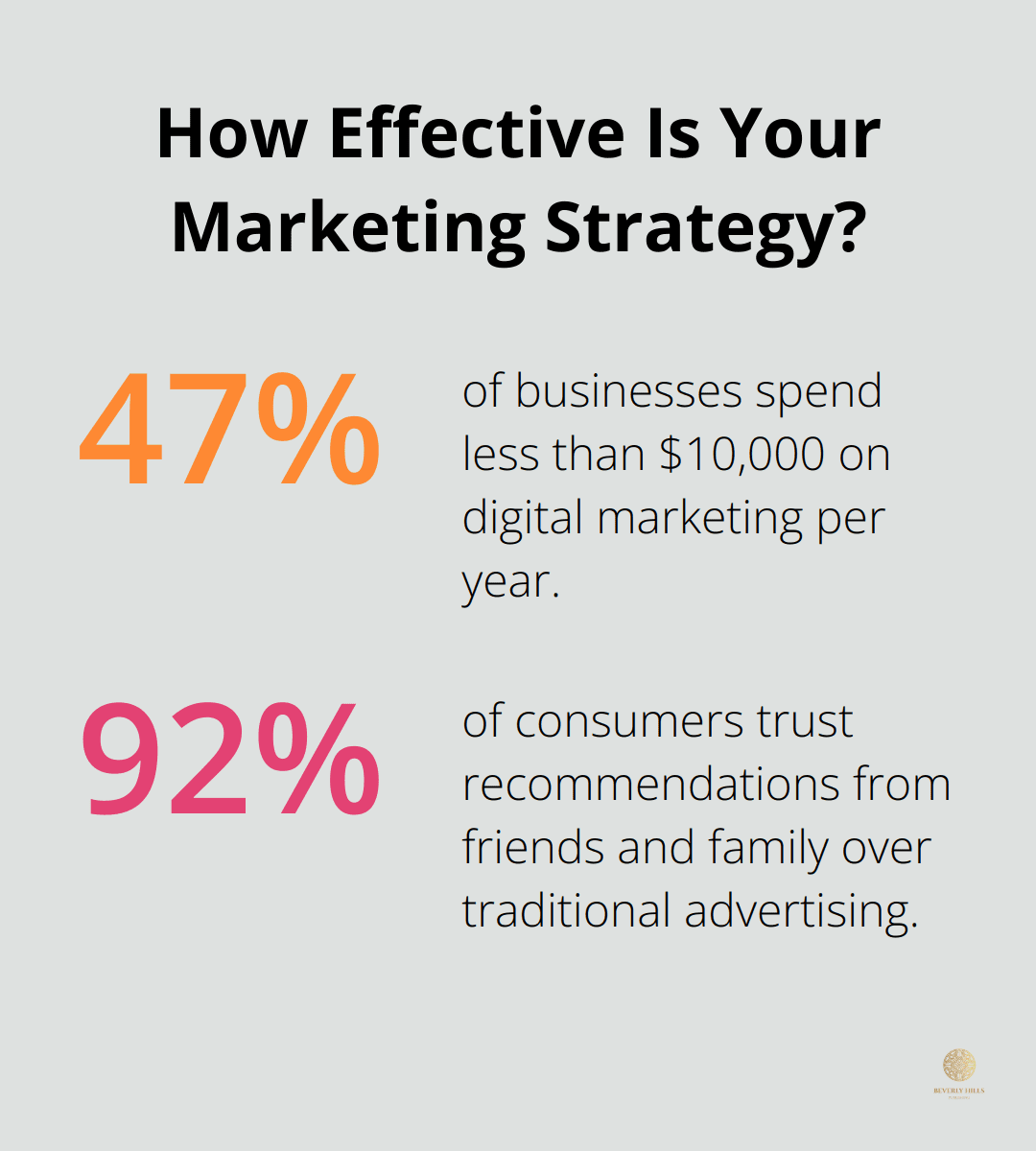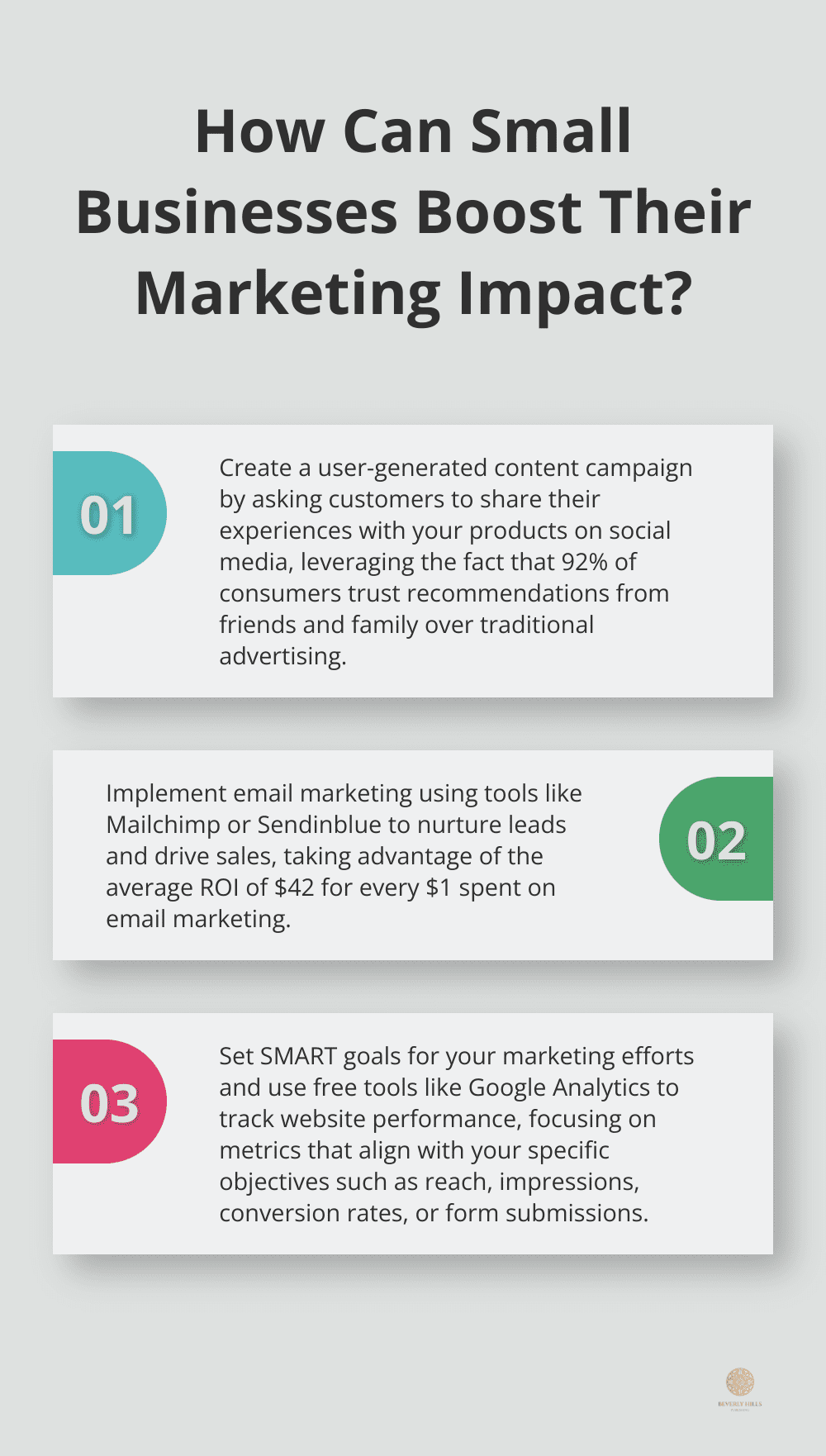At Beverly Hills Publishing, we understand the unique challenges entrepreneurs face when marketing their businesses. Entrepreneurial marketing requires a different approach than traditional methods, focusing on creativity, flexibility, and resourcefulness.
Our new entrepreneurial marketing book provides a comprehensive guide to mastering these essential skills. In this blog post, we’ll explore effective strategies, common challenges, and practical tips to help you succeed in today’s competitive business landscape.
What Is Entrepreneurial Marketing?
The Essence of Entrepreneurial Marketing
Entrepreneurial marketing revolutionizes how startups and small businesses promote themselves. It transcends mere product promotion; it creates opportunities, builds relationships, and maximizes limited resources. At its core, entrepreneurial marketing encourages thinking outside the box and discovering innovative ways to reach and engage customers.

This approach embodies agility and creativity. It’s the art of spotting opportunities where others see obstacles. Consider a small coffee shop that can’t match big chains’ advertising budgets. They might partner with local artists to create unique, Instagram-worthy latte art. This strategy not only saves money but also generates buzz that big brands can’t replicate.
Breaking Away from Traditional Marketing
Traditional marketing often depends on substantial budgets and established channels. Entrepreneurial marketing, however, thrives on innovation and personal touch. A study by the Content Marketing Institute revealed that 70% of B2B marketers now create more content compared to the previous year. This statistic highlights the shift towards more engaging, value-driven marketing approaches.
Importance for Startups and Small Businesses
For startups and small businesses, entrepreneurial marketing isn’t optional – it’s essential. With constrained resources, these companies must market themselves intelligently. A HubSpot report shows that 29% of marketers list SEO as a top trend they leverage, a cost-effective strategy that aligns perfectly with entrepreneurial marketing principles.
This approach allows small businesses to compete with larger companies by leveraging their unique strengths. It focuses on building genuine connections with customers, an aspect that 86% of consumers deem important when deciding which brands to support (according to a Salesforce study).
Leveraging Agility and Personal Touch
Startups can turn their size into an advantage through entrepreneurial marketing. They can respond swiftly to market changes, personalize their approach, and create authentic relationships with their audience. This agility and personal touch distinguish entrepreneurial marketing and make it a vital strategy for business growth in today’s fast-paced market.
The Role of Innovation in Entrepreneurial Marketing
Innovation stands at the heart of entrepreneurial marketing. It involves finding creative solutions to marketing challenges (often with limited budgets). This might include leveraging new technologies, creating unique customer experiences, or developing novel ways to communicate brand messages. For instance, a startup might use augmented reality to allow customers to virtually “try on” products, setting itself apart from competitors and creating a memorable brand interaction.
As we move forward, we’ll explore effective strategies that entrepreneurs can employ to maximize their marketing efforts and overcome common challenges in this dynamic field.
Winning Strategies for Entrepreneurial Marketing
Entrepreneurial marketing demands creativity, agility, and resourcefulness. Let’s explore powerful tactics that can help you stand out in a crowded marketplace.
Harness the Power of Social Media
Social media platforms offer a cost-effective way to reach your target audience. As of January 2025, there are 5.07 billion social media users worldwide, with 259 million new users joining in the last year. This presents a massive opportunity for entrepreneurs to connect with potential customers.

To maximize your social media impact:
- Choose the right platforms: Focus on where your target audience spends their time. B2B businesses might find LinkedIn more effective, while Instagram or TikTok could better suit B2C brands targeting younger demographics.
- Create engaging content: Share valuable information, behind-the-scenes glimpses, and user-generated content to build a community around your brand.
- Use social listening tools: Monitor conversations about your brand and industry to gain insights and respond to customer needs promptly.
- Leverage influencer partnerships: Collaborate with micro-influencers in your niche to extend your reach and build credibility.
Build a Strong Personal Brand
As an entrepreneur, your personal brand often intertwines with your business brand. A strong personal brand can open doors to new opportunities and partnerships.
To build your personal brand:
- Define your unique value proposition: Identify what sets you apart from others in your industry.
- Share your expertise consistently: Write articles, speak at events, or host webinars to establish yourself as a thought leader.
- Network strategically: Attend industry events, join professional associations, and engage in online communities relevant to your field.
- Showcase your achievements: Share case studies and testimonials that demonstrate your expertise and success.
Create Content Marketing that Delivers Value
Content marketing attracts and retains customers effectively. According to recent data, 87% of B2B marketers use content marketing successfully to generate leads, while 56% of marketers who leverage blogging say it’s an effective strategy.
To create effective content:
- Understand your audience: Develop buyer personas to tailor your content to their needs and preferences.
- Diversify your content types: Mix blog posts, videos, podcasts, and infographics to cater to different learning styles.
- Focus on quality over quantity: Create in-depth, well-researched content that provides real value to your audience.
- Optimize for search engines: Use SEO best practices to improve your content’s visibility in search results.
Implement Guerrilla Marketing Tactics for Maximum Impact
Guerrilla marketing allows entrepreneurs to make a big impact with limited resources. These unconventional tactics can help you cut through the noise and grab attention.
Some effective guerrilla marketing strategies include:
- Street art or installations: Create eye-catching displays in high-traffic areas related to your product or service.
- Flash mobs or surprise events: Organize unexpected performances or events that align with your brand message.
- Viral challenges: Create a social media challenge that encourages user participation and sharing.
- Partnerships with local businesses: Collaborate on cross-promotions or joint events to expand your reach.
The key to successful entrepreneurial marketing lies in boldness, authenticity, and a constant focus on providing value to your audience. These strategies form a solid foundation, but the real challenge lies in their execution and adaptation to your unique business context. In the next section, we’ll explore how to overcome common obstacles that entrepreneurs face when implementing these marketing strategies.
Navigating Entrepreneurial Marketing Hurdles
Limited Budget Challenges
Entrepreneurial marketing often faces budget constraints. Almost half (47%) of businesses spend less than $10,000 on digital marketing per year. This limitation pushes entrepreneurs to find creative solutions. One effective strategy involves user-generated content. Businesses can ask customers to share their experiences with products or services on social media. This approach provides free content and builds trust. Nielsen reports that 92% of consumers trust recommendations from friends and family over traditional advertising.

Email marketing offers another cost-effective tactic. With an average ROI of $42 for every $1 spent (DMA, 2019), it nurtures leads and drives sales efficiently. Tools like Mailchimp or Sendinblue help create professional campaigns without high costs.
Standing Out in a Crowded Market
In saturated markets, differentiation becomes essential. Storytelling provides one powerful method to stand out. Storytelling is dimensional and can be pulled into focus with messaging, such as the origins of a brand, its mission, values and history, or even a tag line. Entrepreneurs should share their brand’s journey, challenges, and victories to build emotional connections with their audience.
Niche marketing offers another effective strategy. Instead of appealing to everyone, businesses can focus on a specific market segment. This approach allows for tailored messaging and offerings, increasing relevance and appeal to the target audience.
Measuring Marketing Effectiveness
Proper measurement prevents blind decision-making. Entrepreneurs should set clear, measurable goals using the SMART framework: Specific, Measurable, Achievable, Relevant, and Time-bound. For example, a goal might aim to increase website traffic by 20% in the next quarter.
Free tools like Google Analytics help track website performance. For social media, platforms such as Hootsuite or Buffer offer analytics features. Entrepreneurs should focus on metrics that align with their goals. Brand awareness efforts might track reach and impressions, while lead generation focuses on conversion rates and form submissions.
Data becomes valuable only through action. Regular review of metrics and strategy adjustments improve marketing effectiveness over time.
Adapting to Rapid Market Changes
The fast-paced nature of entrepreneurial marketing demands adaptability. Entrepreneurs must stay informed about industry trends and pivot when necessary. They should always prioritize their audience’s needs in their strategies. This approach equips businesses to overcome marketing challenges and drive growth.
Final Thoughts
Entrepreneurial marketing requires creativity, adaptability, and a deep understanding of your target audience. Social media, personal branding, content creation, and guerrilla tactics provide effective promotion without excessive costs. Innovative thinking and experimentation help overcome challenges like limited budgets, market saturation, and rapid changes.

Success depends on continuous learning and adaptation. Entrepreneurs must stay informed about industry trends, monitor metrics, and pivot when necessary. Different strategies work for different businesses, so trying new approaches and refining based on results is essential.
At Beverly Hills Publishing, we understand the unique challenges entrepreneurs face in marketing their businesses. Our entrepreneurial marketing book provides guidance on mastering these skills. We equip authors with tools to elevate their visibility, build strong brand identities, and emerge as industry leaders with a commanding media presence.















































































































































































































































